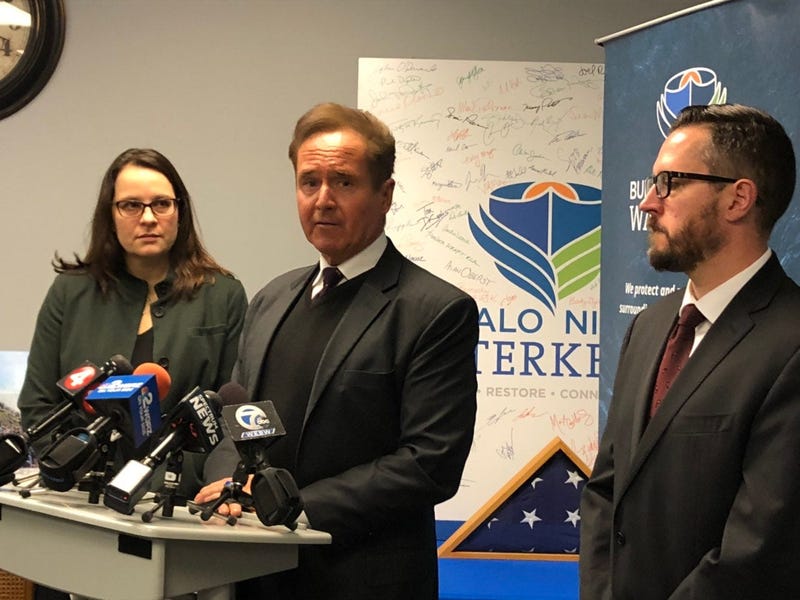
BUFFALO (WBEN) - On Tuesday morning, Congressman Brian Higgins joined local advocates to voice his concerns over the Environmental Protection Agency's efforts to roll back safe water regulations.
Higgins wrote a letter to EPA Administrator Andrew Wheeler, saying, "Rollback of these rules actively threatens efforts to revitalize waterways like the Buffalo River and endangers Western New York and other Great Lakes communities that depend on the health of their natural resources."
In January of 1968, the Buffalo River caught fire due to the pollution of industry, as the river was coated with oil film, sewage and garbage. Since 2011, $75 million in Great Lakes Restoration Initiative funding has successfully removed nearly 550,000 cubic yards of contaminated sediment. The cleanup efforts have helped so much that the Buffalo River is on track to be delisted as an Area of Concern in the near future, but Higgins is worried that the EPA rollbacks will unravel much of this work.
"We are here to talk about and address a very disturbing trend that we see with this administration relative to the rollback of some 95 environmental policies that were put into place to address the environmental problems - air, water and land - particularly in places like Buffalo," said the congressman. "The most disturbing thing is that it is in spite of the President's own appointed scientific advisors who are saying that there's no scientific justification for the rollback of these laws."
Brian Smith, associate executive director for Citizens Campaign for the Environment, echoed many of Higgins' concerns, saying that Buffalo's history of poor water management should serve as a warning of what less stringent regulations could produce.
"Recent investments have pushed Great Lakes restoration a giant step forward, so it's alarming when Trump administration rollbacks threaten to drag us two steps backward," he said. "Many communities continue to struggle with unsafe drinking water, and cutting back on clean water protections now further threatens public health. The EPA should be making decisions based upon the best science, not what is best for big polluters."
